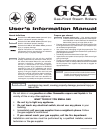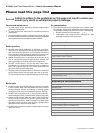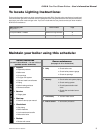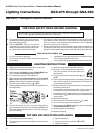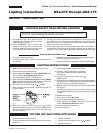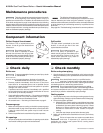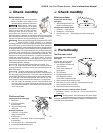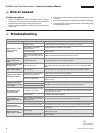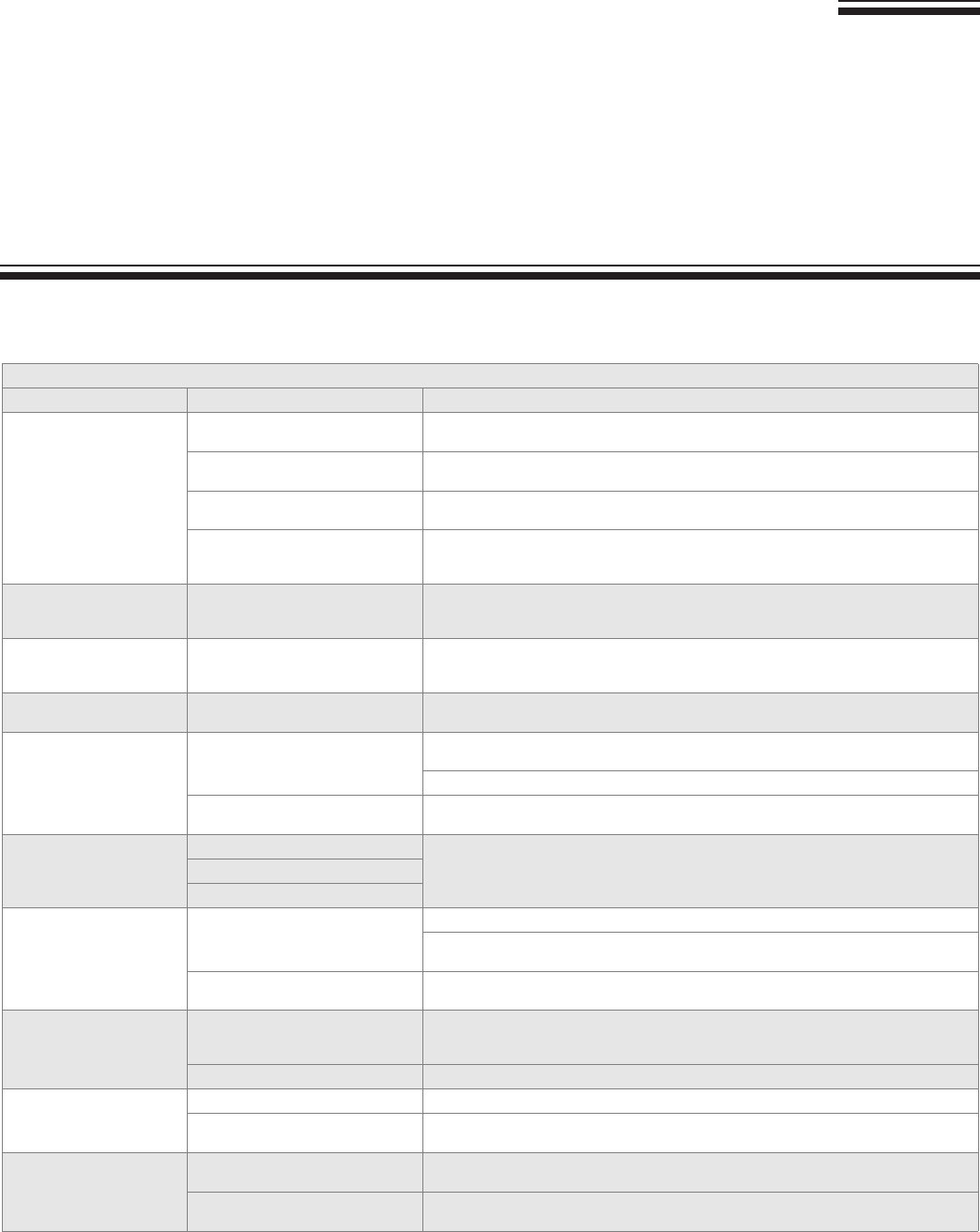
GSA
Gas-Fired Steam Boilers – User’s Information Manual
8 Part Number 550-110-739/0703
W-T
8201 W. Calumet Rd.
Milwaukee, WI 53223
❏ Troubleshooting
Shutdown procedure
1. Follow “TO TURN OFF GAS TO APPLIANCE” on the "Lighting
Instructions" on the inside of the jacket panel. You will also find
these instructions on pages 4 and 5 of this manual.
Use the "Lighting Instructions" for the gas valve model installed
on the boiler.
❏ End of season
2. Do not drain system unless exposure to freezing temperatures
will occur.
3. Do not drain the system if it is filled with an antifreeze solution.
4. Do not shut down boilers used for domestic water heating. They
must operate year-round.
Troubleshooting — Common problems and possible solutions
Symptom Common Causes Possible Corrections
Rapid cycling — boiler
turns on and off
frequently
Thermostat installed where drafts or
heat affect reading
Locate thermostat on inner wall away from heat sources or cool drafts.
Heat anticipator in thermostat
adjusted incorrectly
Adjust thermostat per manufacturer's instructions.
Incorrect limit setting
Set limit according to system needs. Maximum setting is 15 psig. Increase limit setting to
decrease cycling.
Main air vent not working (one-pie
steam) or trap not working (two-pipe
steam)
Contact service technician to check/replace main air vent or trap
Frequent release of
water through relief
valve
Inoperative limit control Call qualified service technician to replace limit control.
Need to frequently add
makeup water
Leaks in boiler or piping
Have qualified service technician repair leaks at once to avoid constant use of makeup
water. Makeup water can cause mineral deposits which, in turn, can cause boiler section
failure.
Black water condition
Oxygen corrosion due to leaks in
boiler and piping
Have qualified service technician repair at once. Keep pH of water between 7.0 to 8.5.
Popping or percolating
noise heard in boiler
Mineral deposits in sections due to
constant use of makeup water
Call qualified service technician to de-lime boiler, if necessary. In some cases, deposits will
be too heavy to remove with de-liming procedures.
Have qualified service technician repair leaks to eliminate need for constant makeup water.
Incorrect pH of boiler water
Call qualified service technician to check pH level and correct. pH should be maintained
between 7.0 to 8.5.
Water disappears from
gauge glass and back
out into system through
return piping
Incorrect piping in Hartford loop
Call qualified service technician to inspect. Correct piping, if necessary, to agree exactly with
Boiler Manual. Clean or replace check valve or vacuum breaker if required.
Check-valve inoperative or leaking
Vacuum breaker inoperative
Metal flakes found in
vent outlet or vent —
flueway corrosion
Contaminated combustion air supply
— See page 2 in this manual.
Remove any contaminating products. See page 2 in this manual.
Provide outside air for combustion. Kit available through local distributor. Have qualified
service technician pipe-up kit.
Condensation of combustion gases
in boiler sections
Have qualified service technician inspect system piping and controls to verify proper
regulation of return water temperature.
Some radiators or
baseboard units do not
heat
Main (or radiator) air vents (one-pipe
steam) or traps (two-pipe steam) not
operating correctly
Call qualified service technician to inspect/replace air vents or traps
High limit set too low Adjust high limit to higher setting.
Violent waterline
fluctuations or surging
Dirt, oil or other impurities in water Call qualified service technician to skim boiler, referring to Boiler Manual for procedure.
Waterline too high
Correct waterline to maximum height of gauge glass, minimum height of ¼” above bottom
of gauge glass.
Water passing into
steam mains — priming
Incorrect piping
Call qualified service technician to inspect piping, correcting to exactly as shown in Boiler
Manual, if not as shown.
Sudden release of boiler steam
pressure by action of zone valves
Call qualified service technician to inspect, adjusting valves or replacing with slow-opening
valves if necessary.



